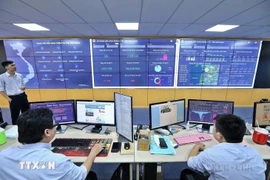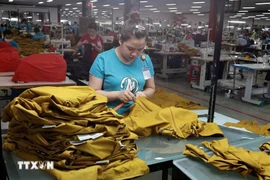HCM City (VNS/VNA) - Vietnam is aggressively promoting growth, enhancing competitiveness, and fostering innovation, with major current and upcoming breakthrough policies poised to redefine the nation's approach to economic development, experts said at a seminar held in Ho Chi Minh City on March 25.
The seminar “Vietnam’s Economic Outlook 2025 and Key Business Policies to Watch”, organised by the Business Association of High Quality Vietnamese Products, discussed the direction and implications of economic reforms.
Dau Anh Tuan, Deputy Secretary General and Head of the Legal Department of the Vietnam Chamber of Commerce and Industry (VCCI), said the Government’s Resolution No. 25 assigns specific growth targets to local authorities, placing substantial pressure on them.
The country aims for an 8% growth rate and double-digit figures in the coming years.
“While this represents a considerable challenge, it also offers an opportunity for the country to achieve a strong breakthrough,” he said.
Meanwhile, major policy initiatives, such as Resolutions Nos. 57 and 193 and an upcoming resolution on the private sector, reflect a growing focus on science, technology, and private enterprises.
The country's total import-export turnover has reached nearly 800 billion USD and is expected to surpass 1 trillion USD, highlighting the country’s heavy reliance on global trade.
Additionally, foreign direct investment (FDI) inflows into the country have been highly positive over the past year.
In an open economy like Vietnam, even a significant change in the international market can heavily impact the domestic economy.
“Therefore, businesses must be more proactive in managing risks and seizing opportunities presented by free trade agreements (FTAs), while improving adaptability and risk management capabilities,” Tuan said.
Moreover, as Vietnam deepens its global integration, improving product standards, building brand credibility, and ensuring transparency across supply chains are no longer optional; they are essential requirements for Vietnamese enterprises.
This means that businesses should not only aim to satisfy domestic market demands but must also meet the strict standards of international markets, covering product quality, social responsibility, and sustainable development.
Doan Dinh Manh Toan, CEO of ASIF Foundation, highlighted research findings showing that consumers increasingly prefer to buy from companies that demonstrate strong social responsibility.
“This makes corporate social responsibility (CSR) a powerful tool to enhance brand reputation and long-term competitiveness,” he said.
At the same time, more investors are considering a company’s ESG (Environmental, Social, and Governance) strategy as a key factor in investment decisions, with many willing to divest from firms that fail to meet ESG standards.
Therefore, he said that businesses need to actively create sustainable social value by building business models that balance profitability with social goals that align well with emerging policies.
“In parallel, fostering ecosystems for collaboration and shared value among governments, non-profit organisations, and businesses is an effective strategy for shaping ESG-focused plans.”
Vu Kim Hanh, Chairwoman of the Business Association of High-Quality Vietnamese Products, said that for nearly thirty years, the "High-Quality Vietnamese Goods" programme has remained committed to the two core principles embedded in its name: “Consumers” and “High Quality.”
It has been a long journey in which consumer trust in Vietnamese goods, combined with the persistent efforts of the association, has driven businesses to continuously improve product quality, contributing meaningfully to the country's economic development.
“Beyond building a supportive business ecosystem, the association has also actively promoted green transition initiatives, making it a central focus in recent years,” she said.
Through these efforts, the association continues to accompany enterprises on their path to sustainable development, aligning social responsibility with long-term competitiveness./.
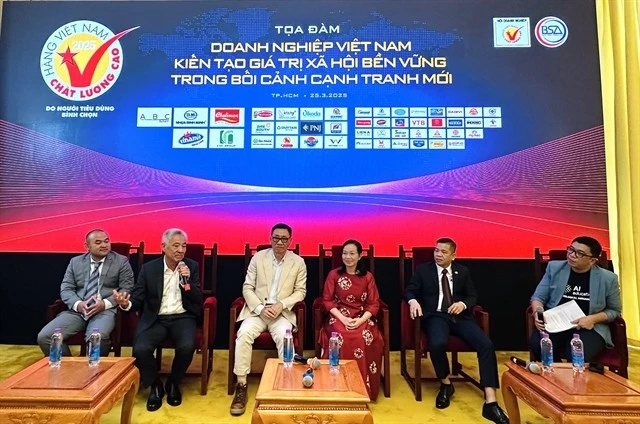
See more
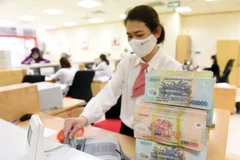
Central bank required to consider proposals on Basel III application
The direction is under the newly-issued Prime Minister's Directive 09/CT-TTg on the tasks and solutions of State-owned enterprises (SOEs) to contribute to the Government’s double-digit economic growth target.
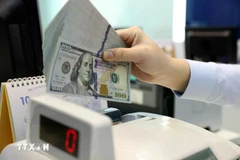
Reference exchange rate down 2 VND on April 1
The State Bank of Vietnam set the daily reference exchange rate for the US dollar at 24,835 VND/USD on April 1, down 2 VND from the previous day.
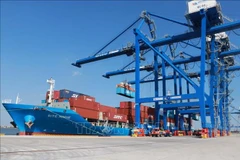
Phuoc An port welcomes first SITC container vessel
As the largest seaport in Dong Nai, it includes a 160-hectare terminal area with a total berth length of over 2,800 metres, featuring nine container berths capable of handling vessels up to 100,000 DWT. Upon full completion, the port will have an annual capacity of handling 7 million TEUs.
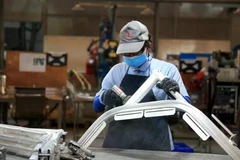
Dong Nai’s Q1 FDI attraction nears yearly target
The southern province of Dong Nai attracted 927 million USD in foreign direct investment (FDI) in the first quarter of 2025, including 407 million USD was invested in 29 new projects, and more than 520 million USD went to existing ones.
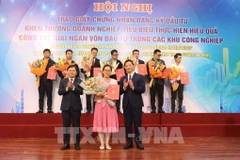
Bac Ninh receives additional investment of nearly 1.1 billion USD
Investment licences were handed over to 14 domestic enterprises with a combined investment of 8.1 trillion VND (324.6 million USD), six foreign companies with 320.5 million USD, and three companies that increased their investment by 135.8 million USD.
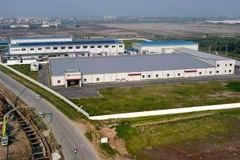
Hai Duong industrial parks attract 419 million USD in Q1
Hai Duong attracted 125 million USD in foreign direct investment (FDI) and 6.92 trillion VND (270.7 million USD) in domestic direct investment (DDI) in the first quarter of 2025.
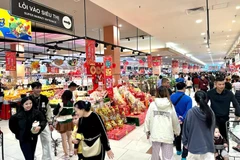
Proposed VAT reduction expected to boost consumption, businesses' growth
The proposed cut would apply to goods and services currently subject to a 10% VAT rate, lowering it to 8%, except for sectors such as telecommunications, finance, banking, insurance, real estate, metals, and mining (excluding coal), as well as goods and services subject to special consumption tax (except petrol).

VinFast partners with DHL to deliver car spare parts in Europe
DHL will store spare parts for all VinFast vehicle models in Europe at its Holtum facility in Born, the Netherlands. In urgent cases, parts can be delivered within 24 hours.
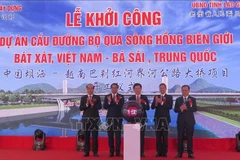
Construction begins on Vietnam – China cross-border bridge
The project has a total investment capital of 1.5 trillion VND (58.6 million USD). The main bridge spanning the Red River is a low-tower cable-stayed design consisting of three spans, with a total length of 230 metres and a width of 35 metres.

Honda recalls CB650R, CBR650R motorcycles in Vietnam
Honda has identified the cause as the inappropriate thickness of the paint layer on the gear shift arm, which prevents a direct and secure contact surface.
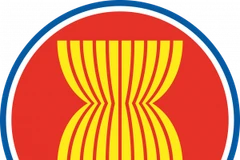
ASEAN opens doors for Danish businesses
Vietnamese Ambassador to Denmark Luong Thanh Nghi reiterated Vietnam’s and ASEAN’s shared dedication to improving the investment climate, ensuring the region remains a prime destination for global businesses, including those from Denmark.

Vietnam Airlines launches new Bangkok – Da Nang route
Manager of Vietnam Airlines’ Thailand branch Ngo Tri Hung said that the new Bangkok – Da Nang route marks a bold step of the airline in linking the two vibrant and promising tourism markets, helping bolster tourism cooperation between the two countries.
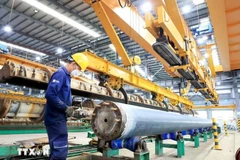
Vietnam strengthens position as attractive destination for FDI capital
According to the National Statistics Office, total registered FDI in Vietnam reached nearly 6.9 billion USD in the first two months of 2025, or a 35.5% increase as compared to the same time last year. Disbursed capital was estimated at 2.95 billion USD, up 5.4% year-on-year.

Vietnam’s forestry sector poised for breakthrough growth
As one of the three pillars of the agricultural sector, alongside livestock and fisheries, forestry is being developed, not only with a focus on sustainability but also as a multi-objective industry that maximises its economic, environmental and climate resilience contributions.
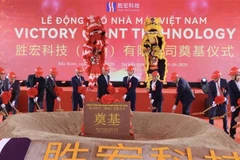
Work begins on two hi-tech factories in Bac Ninh province
Since the beginning of this year, Bac Ninh has attracted approximately 1.45 billion USD in foreign direct investment (FDI). To date, the province has granted investment registration certificates to over 2,400 valid FDI projects, with a total registered capital of 31.3 billion USD, ranking 7th nationwide in terms of investment attraction
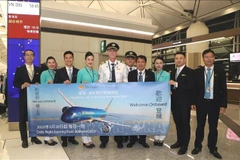
Vietnam Airlines resumes direct flights between HCM City, Hong Kong
The inaugural flight, VN595, departed from Hong Kong to HCM City on March 30, marking the first regular service on this route after a one-year suspension.
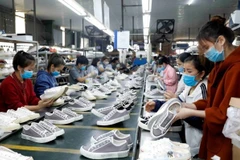
Vietnam companies in Myanmar face more challenges after earthquake
After a powerful 7.7 magnitude earthquake in Myanmar on March 28, all Vietnamese businesses were reported safe, but trading activities will face significant obstacles, the Vietnam Trade Office in Myanmar said.
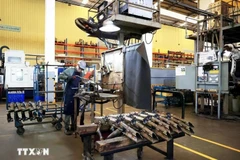
Foreign investment attraction flourishes on better business climate
The northern localities of Bac Ninh, Ha Nam, and Hai Phong attracted substantial foreign investments in the first quarter of 2025, including those from world-leading economic conglomerates with advanced and environmentally-friendly technologies.
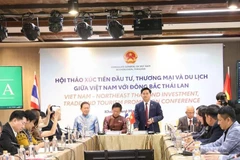
Vietnam, Northeast Thailand strengthen investment, trade, tourism ties
There is untapped potential for economic cooperation between the two sides, particularly in infrastructure and logistics, agricultural production and food processing, renewable energy, creative technology-innovation, and tourism.
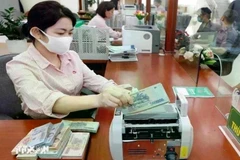
Reference exchange rate down 6 VND at week’s beginning
The State Bank of Vietnam set the daily reference exchange rate for the US dollar at 24,837 VND/USD on March 31, down 6 VND from the last work day of the previous week.
